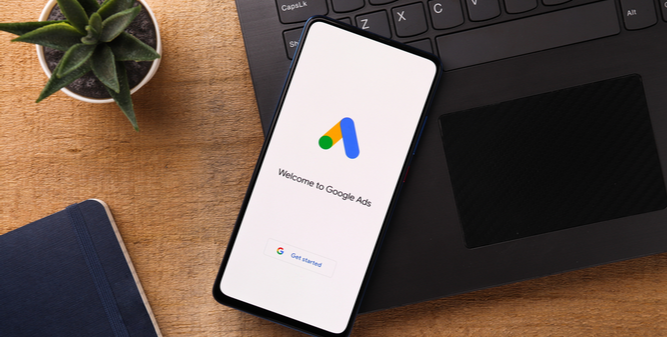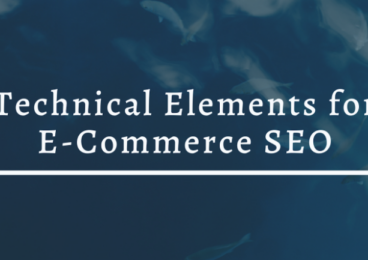 Reading Time: 4 minutes
Reading Time: 4 minutesAs Google constantly updates its algorithm to stay relevant for its users, it’s important for you to stay on top of your own efforts to ensure that the pages you manage remain consistently in front of the eyes of your most critical audiences. Recently, there have been multiple updates to Google Ads specifically, which could drastically change how well you perform when it comes to enticing your target audience to click through to your page. We’ve rounded up a brief list of upcoming changes so you can keep an eye on your performance and adjust future efforts accordingly.
Responsive Search Ads Become the Default Ad Type
Until recently, expanded text ads were the default way Google presented ads to marketers looking to begin a search ads campaign. Marketers could write a headline and expanded body copy in a particular order, creating an ad that would show up in multiple versions. Now, Google has opted to make Responsive Search Ads (RSAs) the default ad type, though you can still create and make changes to expanded text ads. While this will not change the way Google serves ads to its viewers, it will require you to look at how you create them a bit differently.
Instead of creating multiple versions of the same ad and rotating them based on your preferences, each aspect of an RSA ad is broken down into an “asset.” These assets are then presented in multiple configurations of headlines and body to present the best combination based on your campaign goals and the viewer’s needs. Google believes that the move towards RSAs will help you improve your efficacy and save time in the process.
Because the arranging and rearranging of assets takes place automatically, there is a bit of room for error with RSAs if your assets only make sense in one order. For example, if you create two headline assets that say, “Two for one spaghetti dinner, “ and “Kids eat free too!” your RSA could read “Kids eat free too! Two for one spaghetti dinner,” which doesn’t make sense presented out of order. You’ll need to take care to utilize the pin functionality to ‘pin’ a particular assent in place or simply create ad assets that make sense on their own and in any order.
Transition of BMM Keywords to Phrase-Match
As we previously covered, Google is also making changes to the way it matches user queries with the ads you’ve created. In the past, the search engine used three separate methods of populating both search engine results and paid ads to fulfill queries. Through Exact Match, Google serves queries with results containing keywords and phrases that precisely match the query. Broad Match Modifier (BMM) keywords help Google remain more interpretive, serving results for similar, closely related keywords in an attempt to anticipate user needs. Meanwhile, Phrase Match serves ads that match exact keywords, closely related keywords, and other associated keywords. Each type of matching required its own separate input within Google Ads.
In February, Google announced its plans to transition match types into a new matching behavior that rolls BMM keywords into Phrase Match keywords. The action is intended to expand on Google’s ability to anticipate user needs while eliminating inadvertent useless results created by top-broad or disordered matching. For example, with BMM, a keyword search of “moving trucks from the US to Canada” may have resulted in moving services available from Canada to the US instead, unhelpful to most users. This is because BMM matching specified only that all relevant keywords must be present in the query to serve ads attempting to match those terms.
By contrast, the Phrase Match system specifies the order of a typed phrase as well as broad keyword matching, serving only the most relevant results and ads for a user search. Google will still populate ads that account for misspellings and a broader interpretation of the initial keywords but will first determine whether order is important. The move should reduce the likelihood Google will serve your ad for reversed terms or other unrelated searches, helping you avoid excessive spending and irrelevant traffic. Full sunsetting of BMM is not scheduled to take place until July 2021, at which time you will no longer be able to create new BMM keywords; however, you can continue to monitor your existing campaigns after they are rolled into Phrase Match.
The End of Showcase Shopping Ads
As of April 1, 2021, Google is discontinuing its Showcase Shopping Ads. Whether you’ve made use of these ads as a marketer or not, you’ve likely seen them displayed via your own personal search. They allowed online merchants to input multiple facets of both online and local inventory within the Merchant Center before serving visually-based ads with a photo, title, shop name, product, price, and more. Popular ad types like product carousels and more were previously rolled into Showcase Shopping Ads.
Moving forward, these ad types will be available as a part of Google’s Product Shopping Ads. Instead of placing a bid based on relevant keywords, Product Shopping Ads allow you to bid using a product group within your inventory. Google will then serve your ads dynamically, in multiple different visual display types depending on your preferences and the user’s needs. After Showcase Shopping Ads are discontinued, you will no longer be able to create new ads of this type. However, you’ll retain access to any performance data you accumulated within your Google account reports.
What This Means For You
In a nutshell, while further action on your part to mitigate the above changes isn’t necessary to access previous expanded text ads, BMM keywords, or Showcase Shopping Ads, you’ll need to make adjustments to how you create ads in the future. In the meantime, Google encourages marketers to continue to make use of the “Recommendations” section of your account as it condenses various areas of the Google Ads platform. While Google makes changes to make its interface a bit less complex and a great deal more automated, your future ad campaigns will need to adjust accordingly.
At Vizion Interactive, we have the expertise, experience, and enthusiasm to get results and keep clients happy! Learn more about how our status as a Google Partner, along with our PPC Management, Google Shopping Ads, Social Media Advertising, Amazon Advertising, and other Paid Media services can increase sales and boost your ROI. But don’t just take our word for it, check out what our clients have to say, along with our case studies.




